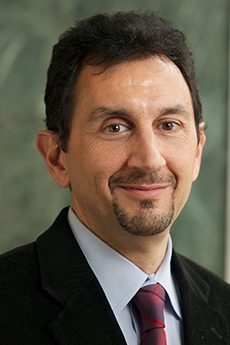If you stretch a rubber band beyond its elastic limit, it never returns to its original shape. This behavior illustrates the concept of hysteresis since the rubber band's state depends on its history, particularly in response to external factors. While hysteresis can be observed across various fields, research on its effects tends to be siloed. Professor Can Korman demonstrated the value of reaching across disciplines by using his expertise in magnetic hysteresis to shed light on hysteresis in macroeconomics in the newly published book Theory of Macroeconomic Hysteresis.
Korman is an electrical engineer renowned for his extensive research in magnetics and hysteresis. In 2020, his expertise attracted the attention of an economist seeking to understand the long-term economic impacts of shocks like the COVID-19 pandemic that traditional macroeconomic models cannot explain, such as persistent employment and inflation. Korman notes the ensuing discussion led him and former mentor Dr. Isaak Mayergoyz from the University of Maryland to delve into macroeconomics, focusing on how the aggregation of numerous microeconomic actions can lead to macroeconomic hysteresis.
Despite the apparent differences between fields, the synergy between the team’s deep understanding of Preisach hysteresis modeling and macroeconomics phenomena led to this book, which Korman states “is the culmination of applying our knowledge and expertise in hysteresis modeling to the theory of macroeconomic hysteresis.”
The book details the team's discovery that investment decisions, such as hiring and firing, are irreversible, similar to the irreversible magnetization of ferromagnetic domains, known as hysteresis in magnetics. These decisions ultimately contribute to macroeconomic hysteresis, leading to effects like long-term unemployment. Through mathematical analysis, Korman enhanced the understanding of hysteresis in macroeconomics, demonstrating the value of interdisciplinary efforts in generating new insights.
“With this experience, I have reaffirmed my belief that one must have a strong and deep knowledge in a field to become an expert, yet not be afraid to reach out to colleagues in other disciplines. Such outreach may occasionally lead to remarkable results that otherwise would never occur if one stayed in their domain only,” said Korman.


